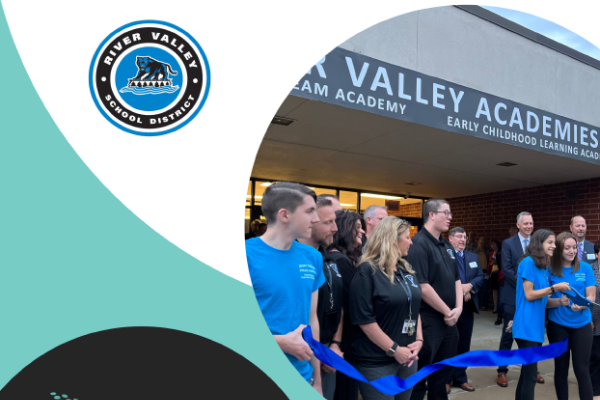Washougal’s Construction of a Culture of Belonging
February 01, 2023
AASA Learning 2025 Lighthouse Demonstration System: WASHOUGAL SCHOOL DISTRICT
With its focus on social emotional learning, culturally responsive classroom management and equity, the Washougal School District in Washington unpacks what it means to be human and supported in a public education system in today’s divisive times.
Led by a superintendent with human resource management experience, Washougal educators and staff have worked hard to make school a place where students feel accepted and valued no matter their race, religion, gender identity or ability. The ongoing effort to build a culture of belonging, care and kindness is as essential as context and curriculum. It has borne fruit for adults as well as students.
“In a high-belief system you believe that each student deserves to be seen, known and valued and to have a future in the community, much like the one you would want for your own children,” says Mary Templeton, the fifth-year superintendent of the 3,100-student Washougal district, located across the border from Portland, Ore.
“When you have high beliefs in every child, you are stating your commitment to see their humanity first,” Templeton adds.
Toward that end, the district, a designated AASA Lighthouse System, showcases an approach in which student discipline is restorative, not punitive; equity is both a visionary statement and aspirational goal; and every day for every student across all grade levels starts with a morning meeting.

“We’re living in a world that is quite divisive, where it’s almost impossible for adults to have a healthy dialogue when they have a difference of opinions,” says David Cooke, principal of Jemtegaard Middle School. “In Community Circles every morning, students work together, listen to each other’s opinions and learn from each other, and that gives me hope."
At Hathaway Elementary, children every day assess their color-coded “zone of emotional regulation,” which ranges from green (for happy, calm, focused and ready to learn) to red (for angry or frustrated). “Students talk about the zone they’re in and what they need from their peers and teachers to support them throughout the day,” principal Wendy Morrill says. “That’s a really valuable way to start the day.”
Adult Development
But it’s not just the students who need a wellness check.
“As a superintendent coming through the COVID experience, you recognize staff too must be a focus of wellness,” Templeton says. “It’s not just about the child’s cognitive, social and emotional wellness. We can’t do the work that we aspire to do until every human being within the system feels a strong sense of purpose, support and energy to move forward.”
Templeton launched her career in Washougal with strategic planning and a two-year commitment to staff development and training, where the adults confronted their implicit biases and learned to look at the business of schooling through the eyes of a diverse student body.
Earlier, as director of human resources for certified personnel in Spokane, Wash., Templeton worked with culturally responsive classroom management training modules created by the Washington Education Association. She followed suit in Washougal and the effort has paid off, Templeton says, noting the district’s graduation rate has risen from 74 to almost 90 percent over the past half dozen years.
“We’re making sure that we don’t just say ‘hi’ to students, ‘here’s a survey, tell us what you think,’” Templeton says. “We’re getting back to students and saying ‘we heard you, we evaluated our system and we’re willing to make some hard decisions and adjustments because you’re telling us that some of the things we’re doing are not working for you.’”
Listening to learn extends to families and community interests as well.
Washougal’s decision to hire the district’s first-ever Spanish-speaking liaison coordinator has been a “game changer,” says Cooke, the middle school principal, noting the position has been filled by a community leader who volunteered for years as a liaison between school, home and community interests.
“Any conversation I have with a Spanish-speaking family or a student with special needs, it’s a learning experience for me to become a better principal,” Cooke says. “Associating myself with Sandie Renner, our liaison coordinator, I can see through the appropriate lens.”
Importance of Action
But hearing without acting carries little weight among students, and that’s where Templeton says the “soggy chicken sandwich” story comes into play.
“The kids told me, ‘Dr. Templeton, the chicken patty sandwiches are awful,’ and that led to my big idea,” the superintendent explains. “I wanted to walk into the building and smell a fresh batch of cranberry and raisin cookies. When you go to grandma’s house for Sunday dinner, you walk in, smell the cooking and know you’re going to sit down and share a meal and a conversation. That’s what I was going for.”
Washougal now employs “a chef hired straight from the hospitality industry and he’s really good,” Templeton says. “Staff participation in meals is up like 300 percent and scratch-made meals have become a symbol” for building human connections in Washougal.
Linda Chion Kenney is a freelance education writer in Lithia, Fla.
Author
Roster of Lighthouses
To read the full list of Lighthouse school systems being featured in this series and learn more about becoming a demonstration district, visit aasa.org/learning2025.
Advertisement
Advertisement
Advertisement
Advertisement




